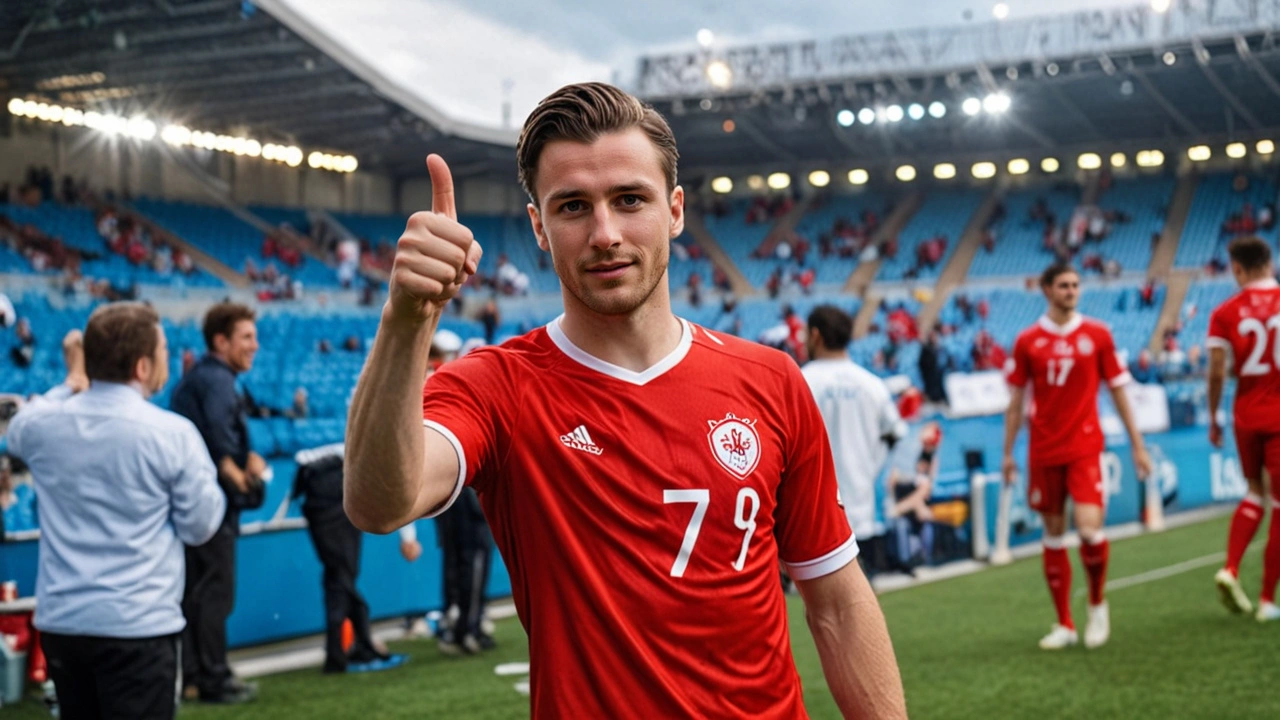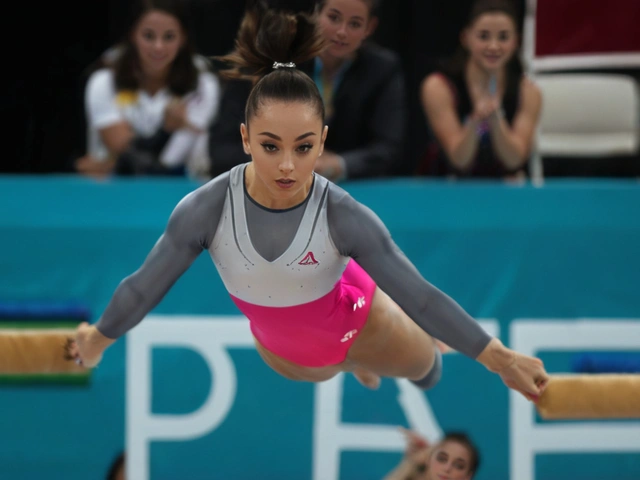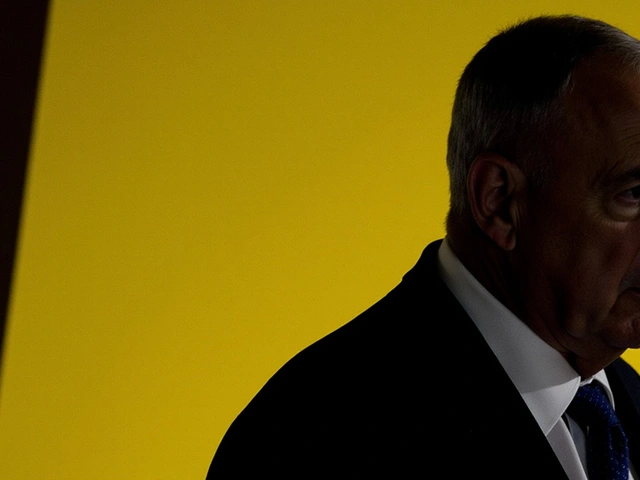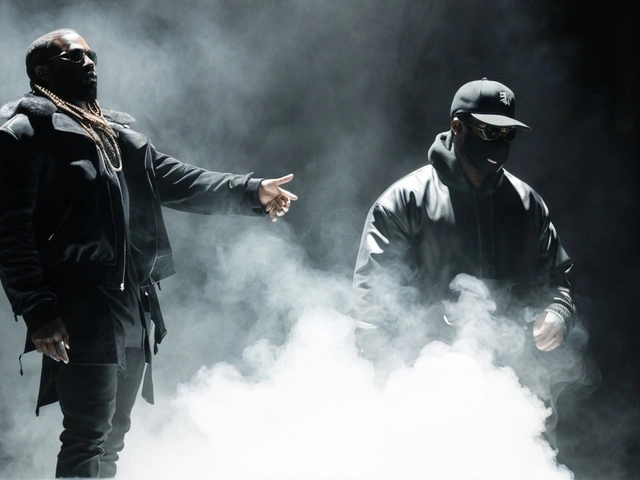Canada's Historic Match Turned Heartbreak
The 2024 Copa America has been a roller-coaster ride for the Canadian national team. Heading into the third-place match against Uruguay, Canada had their sights set on achieving their best-ever finish at a major international tournament. The setting was the Bank of America Stadium in Charlotte, North Carolina, a venue that buzzed with anticipation and excitement as fans from both nations gathered to witness history.
The Canadian team, under the tactical direction of coach John Herdman, has shown remarkable growth and resilience throughout the tournament. They managed to reach this crucial match despite a grueling schedule, which saw them fall to defending champions Argentina twice. However, their performances against other formidable teams like Peru, Venezuela, and Chile boosted their confidence and showcased their potential on the international stage.
Uruguay's Road to the Third-Place Clash
On the other side was Uruguay, a team rich in history and tradition within the world of soccer. However, Uruguay's journey to the third-place match was fraught with controversy and drama. Following their semifinal defeat to Colombia, a brawl erupted as several Uruguayan players, including star forward Darwin Nunez, entered the stands and engaged in physical altercations with supporters. This incident led to possible suspensions and sanctions that loomed over their heads as they prepared to face Canada.
The backdrop of these tensions added a layer of unpredictability to the match. Would Uruguay's aggressive nature and their protestations over protecting family members from unruly fans affect their performance? Or would Canada capitalize on this turmoil to achieve a historic bronze medal?

The Match Begins: A Tactical Battle
As the whistle blew to start the match, both teams aligned in their strategic formations. Canada opted for a classic 4-4-2 setup, with Maxime Crepeau as the goalkeeper, buoyed by a defensive line comprising Alistair Johnston, Moïse Bombito, Derek Cornelius, and Richie Laryea. The midfield was robust with Liam Millar, Ismael Kone, Stephen Eustaquio, and Jacob Shaffelburg. Leading the charge upfront were Jonathan David and Cyle Larin.
Uruguay, true to their attacking roots, lined up in a 4-3-3 formation. Sergio Rochet guarded the posts, and Damian Suarez, Jose Maria Gimenez, Sebastian Coates, and Mathias Vina formed their defense. The midfield trio consisted of Federico Valverde, Manuel Ugarte, and Giorgian De Arrascaeta. Luis Suarez, alongside Darwin Nunez and Facundo Pellistri spearheaded the attack.
First Half: A Tactical Chess Game
The first half was a tight affair, with both teams cautious yet eager to seize any opportunity. Canada's midfield worked tirelessly to disrupt Uruguay's creative flow, with Eustaquio and Kone putting immense pressure on Valverde and Ugarte. Alphonso Davies' absence was felt, yet Jacob Shaffelburg stepped up admirably, providing width and speed down the flanks.
Chances were few and far between as both defenses held firm. Jonathan David tested Rochet with a powerful shot from the edge of the box, while at the other end, Nunez found himself narrowly offside as he attempted to latch onto a through ball from Suarez. The half ended in a stalemate, with both sides knowing that a single mistake could change the course of the match.
Second Half: The Drama Unfolds
As the second half commenced, the tempo of the game increased. Canada emerged from the tunnel with renewed vigor, determined to break the deadlock. In the 55th minute, Cyle Larin came agonizingly close to scoring, his header from Millar's cross narrowly missing the target.
The breakthrough finally came in the 70th minute when Jonathan David capitalized on a defensive error from Uruguay. Intercepting a misplaced pass, David surged forward and slotted the ball past Rochet, sending the Canadian fans into raptures. It seemed as though Canada was on the brink of a historic victory.
Uruguay's Response and Penalty Drama
However, Uruguay wasn't ready to concede defeat. With 10 minutes left on the clock, the experienced Luis Suarez rose to the occasion. His clever movement and positioning caused chaos in the Canadian box, and an equalizing goal came from a well-executed corner kick, with Suarez himself nodding the ball into the net.
The match headed into nerve-wracking penalty shootouts after the full-time whistle. Canada's earlier efforts and determination faltered as Uruguay's seasoned players showcased their composure. The penalties were tough, with Uruguay emerging victorious after a tense shootout, clinching the third spot and leaving Canada heartbroken.

The Aftermath and Future Prospects
This match will be remembered not just for its on-pitch action, but also for the underlying drama surrounding both teams. The Canadian squad, though disappointed, can hold their heads high, having demonstrated significant progress and promise. Jonathan David and Alphonso Davies have proven themselves as pivotal players, with the potential to lead Canada to greater heights in the future.
For Uruguay, the win was bittersweet, marred by the controversies off the field. The episodes involving Darwin Nunez and other players' altercations with fans have cast a shadow over their campaign. Yet, their resolve and ability to handle pressure, especially during the penalties, showcase their enduring strength and competitive spirit.
Final Thoughts
The 2024 Copa America third-place match between Canada and Uruguay was a microcosm of the tournament's intense emotions, fierce competition, and dramatic turn of events. While Canada fell short of a fairy-tale ending, their journey remains a testament to their growth and potential in international soccer. Uruguay's victory, marred by off-field incidents, still reflects their storied history and fighting spirit.
As the dust settles on this edition of Copa America, both teams will reflect on their performances and gear up for future challenges. Canada's fans can look forward to a bright future, while Uruguay will hope to address internal issues and build on their resilient performance.




Seeing Canada fall just short after such a promising run feels like a modern parable of ambition meeting fate. The squad displayed a collective will that transcended individual talent, echoing the idea that a nation can evolve through shared struggle. While the penalty shootout was cruel, it also illuminated the thin line between triumph and despair in sport. One can argue that the very act of reaching a third‑place showdown marks a watershed for Canadian soccer, a testament to strategic patience and youthful vigor. Yet the lingering sting reminds us that progress is a continuous dialogue, not a single headline.
The match analysis underscores both tactical discipline and moments of individual brilliance.
What a ride for the Canucks! I totally feel you guys – the lads gave their all and showed the kind of grit you want to see on the world stage. That goal from Jonathan David was a beauty, even if it came out of a shaky defensive lapse. The penalty shoot‑out was brutal, but remember, it’s just one chapter in a longer story. Keep that momentum going into the next qualifiers, and don’t let this sting dim the fire. You’ve built a foundation that can only get stronger with time.
Reflecting on the third‑place clash, one cannot ignore the layered narrative that extends beyond the ninety minutes on the pitch. Canada entered the match with a clear tactical blueprint, yet the fluidity of football often rewards improvisation as much as preparation. The early exchanges displayed a disciplined Canadian midfield that sought to disrupt Uruguay's creative arteries, a textbook example of strategic pressing. When Jonathan David finally broke the deadlock, it was less a serendipitous strike and more the culmination of sustained positional awareness. However, Luis Suárez's equalizer served as a reminder that experience and opportunism can overturn even the most carefully laid plans. The ensuing penalty shoot‑out epitomized the psychological duel that separates champions from contenders, where composure under pressure becomes the ultimate variable. Each Canadian player who stepped up demonstrated remarkable mental fortitude, a quality that will serve the squad in future tournaments. While the final outcome was disappointing, the match offered a microcosm of growth, exposing both strengths to be honed and weaknesses to be addressed. The defensive lapse that led to the opening goal invites a reassessment of spatial organization during transitions. Conversely, the attacking movements off the flanks highlighted the potential of players like Cyle Larin to contribute significantly in high‑stakes scenarios. From a coaching perspective, the balance between defensive solidity and offensive ambition must be calibrated carefully. Moreover, the emotional weight of a penalty defeat can be transformed into a catalyst for collective resilience. In the broader context of Canadian soccer development, this performance signals an upward trajectory that should not be dismissed. The synergy between seasoned veterans and emerging talents creates a fertile ground for sustained success. Ultimately, the heartbreak of this match can be reframed as a stepping stone, propelling the nation toward a more assured presence on the international stage.
Yo, Canada, you guys showed the heart of a champion even when the stars didn’t line up! Keep that fire burning, train hard, and remember every setback is just fuel for the next big win. The fans are already hyped for what’s coming, and the squad’s momentum is unstoppable if you stay united. Let’s turn this heartbreak into a celebration of how far you’ve come and how much farther you’ll go!